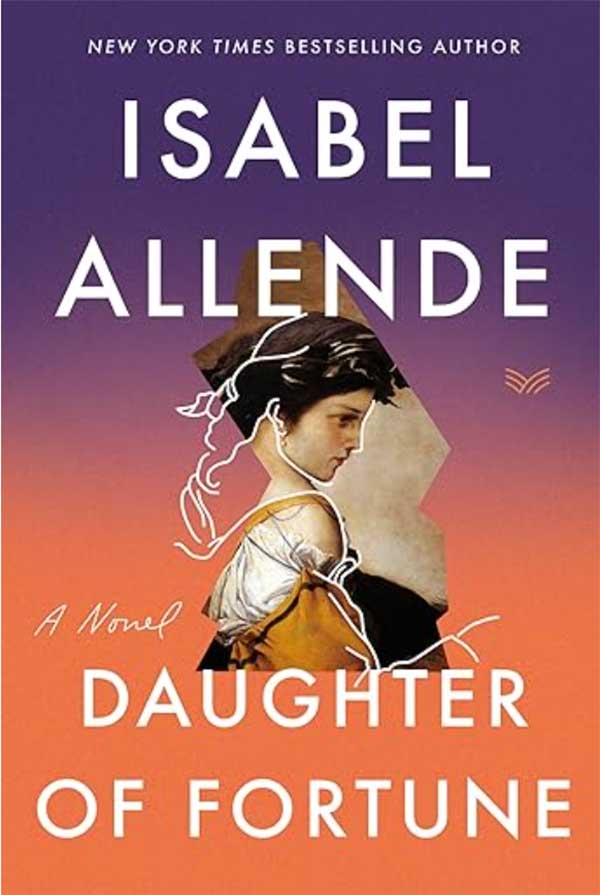Book Banter: Playful Conversations, Daughter of Fortune by Isabel Allende
(1998 Spanish, 1999 English)
(1998 Spanish, 1999 English)

Ever since I read House of Spirits almost two decades ago, I continue to delve into Allende’s prolific novels. Her constant is strong female characters who go on journeys of self-discovery in the face of adversity and find moments of awakening.
Daughter of Fortune is true to this vision and provides a snapshot of the mid-19th century world from Chile to China to the California Gold Rush through its protagonist, Eliza Sommers. Abandoned at birth, Eliza is raised by spinster Rose Summers to be a proper Victorian lady, laced into tight corsets and braced with a metal rod for posture. Allende propels the storyline through unfolding secrets, hidden identities and Eliza’s determination to leave Chile to hunt down her forbidden and dubious gold-seeking lover who flees to California.
It would be hard to accuse Allende of a simple plot. While Eliza’s first love has many unforeseen effects, it is the vehicle that makes her story the story of many stories against the backdrop of historical settings. True to her style, Allende weaves subplots with richly developed characters, using each to reinvent themselves and expose social restrictions and cultural clashes. One of the most memorable characters is Tao Chi’en, a Chinese healer who becomes an integral part of Eliza’s ship-bound journey and survival in California. A large part of the narration follows his life as a Fourth Son in rural China to his training in Chinese medicine as an acupuncture master. A desperate widower and victim of forced service at sea, his compassion and wisdom override injustice and bring Eliza’s journey to an unexpected closure. While the ending was not a tour de force, Allende’s powerful characterization rightfully earned her recognition as one of the most successful female novelists in Latin America.
Janet Matthews, NYSEC Executive Board